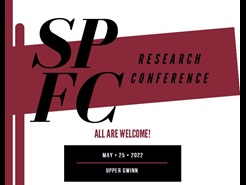Trait moral elevation and its role in predicting mental health and social outcomes
Faculty-Student Collaboration
1
Faculty Sponsor(s)
Thane Erickson
Presentation Type
Event
Primary Department
Clinical Psychology
Description
State moral elevation prospectively predicts prosociality and self-improvement tendencies. However, few studies have investigated trait elevation (TE) in predicting mental health and social outcomes. We evaluated TE in predicting anxiety/depression symptoms, prosociality, and coping, hypothesizing negative relationships with anxiety/depression and positive relationships with prosociality and coping. Participants (N=112) completed TE, anxiety/depression, character strengths, and resilience measures at baseline and recorded daily measures of mood states and stress responses. We conducted simple regressions to test whether TE predicted anxiety/depression symptoms and utilized multilevel models to test whether TE predicted character strengths and adaptive coping responses. Findings and implications will be discussed.
Copyright Status
http://rightsstatements.org/vocab/InC/1.0/
Additional Rights Information
Copyright held by author(s).
Trait moral elevation and its role in predicting mental health and social outcomes
State moral elevation prospectively predicts prosociality and self-improvement tendencies. However, few studies have investigated trait elevation (TE) in predicting mental health and social outcomes. We evaluated TE in predicting anxiety/depression symptoms, prosociality, and coping, hypothesizing negative relationships with anxiety/depression and positive relationships with prosociality and coping. Participants (N=112) completed TE, anxiety/depression, character strengths, and resilience measures at baseline and recorded daily measures of mood states and stress responses. We conducted simple regressions to test whether TE predicted anxiety/depression symptoms and utilized multilevel models to test whether TE predicted character strengths and adaptive coping responses. Findings and implications will be discussed.


